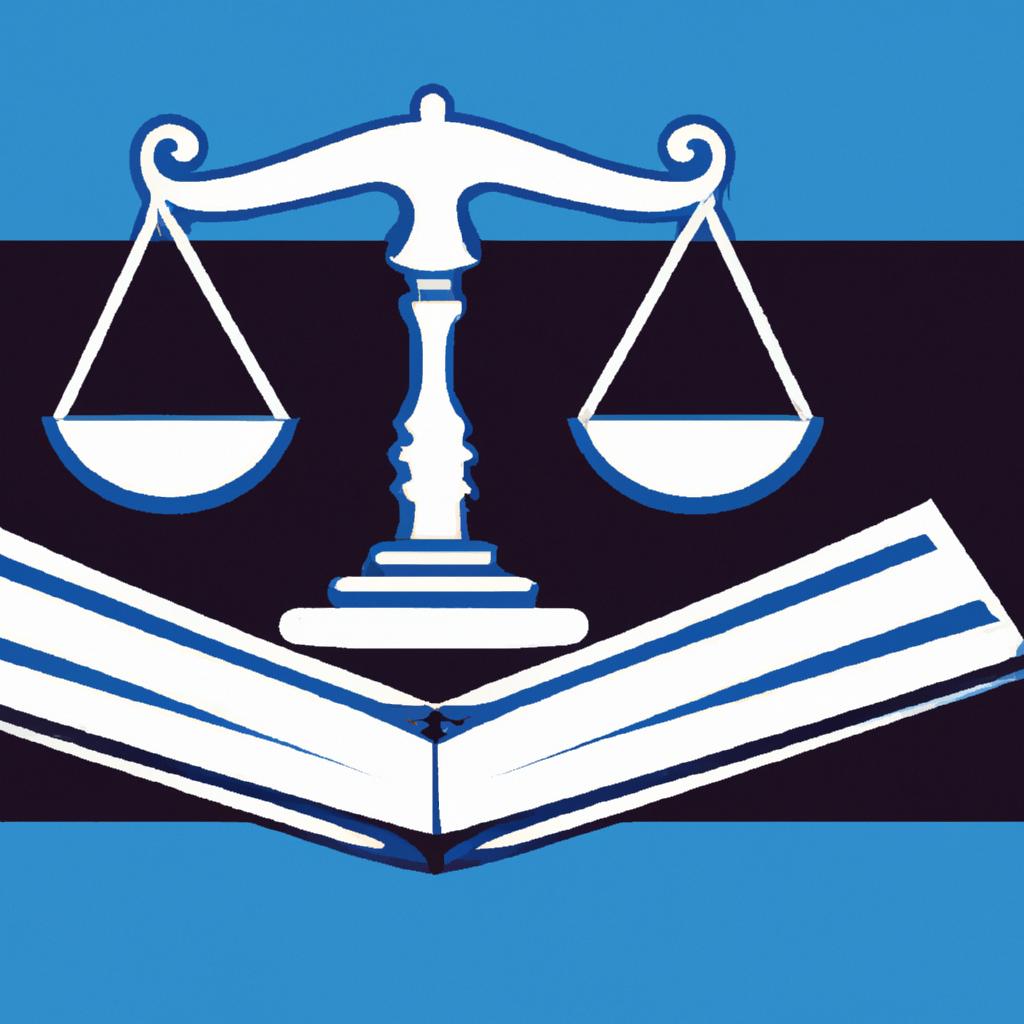In the intricate realm of estate planning, the decision to disclaim an inheritance is a nuanced and strategic choice that should not be taken lightly. As seasoned legal practitioners at Morgan Legal Group in the heart of New York City, we understand the complexities surrounding disclaiming an inheritance and are here to guide you through the process with precision and care. From navigating probate proceedings to ensuring your assets are dispersed according to your wishes, our team of experienced attorneys is equipped to assist you every step of the way. Join us as we delve into the intricacies of disclaiming an inheritance and how it can impact your estate plan.
Understanding the Implications of Disclaiming an Inheritance
When you choose to disclaim an inheritance, it is crucial to understand the legal implications involved in such a decision. By disclaiming an inheritance, you are essentially refusing to accept the assets left to you by the deceased. This decision can have significant consequences and should not be taken lightly.
It is important to consider the following implications of disclaiming an inheritance:
- Loss of Control: By disclaiming your inheritance, you are giving up any control over the assets or property that was left to you.
- Effect on Taxes: Disclaiming an inheritance can have tax implications, as it may affect your income tax or estate tax obligations.
- Impact on Other Beneficiaries: Your decision to disclaim an inheritance may affect other beneficiaries who were expecting to receive a portion of the assets.

Key Considerations When Deciding to Disclaim an Inheritance
When faced with the decision to disclaim an inheritance, there are several key considerations that must be taken into account. It is important to carefully weigh the following factors before making a decision:
- Legal implications: Disclaiming an inheritance can have legal ramifications, so it is crucial to understand the implications of doing so. Consult with a knowledgeable attorney to ensure you are fully aware of the legal consequences.
- Financial impact: Disclaiming an inheritance can have financial implications, such as loss of assets or tax consequences. Consider how disclaiming the inheritance may affect your financial situation now and in the future.
| Beneficiary: | John Doe |
| Inheritance Amount: | $500,000 |
Additionally, consider your personal values and relationships when deciding whether to disclaim an inheritance. It is important to be thoughtful and deliberate in your decision-making process to ensure that you are making the best choice for your circumstances.

Navigating the Legal Process of Disclaiming an Inheritance
When it comes to disclaiming an inheritance, navigating the legal process can be complex and overwhelming. It is important to understand the steps involved and ensure that you are following the necessary procedures correctly. Here are some key considerations to keep in mind:
- Consult with an Attorney: Before making any decisions, it is crucial to seek advice from a qualified attorney who specializes in estate planning and probate law.
- Review the Will: Carefully review the deceased person’s Will to understand the terms of the inheritance and determine if disclaiming is the best course of action.
- File a Disclaimer: If you decide to disclaim the inheritance, you must file a formal disclaimer with the appropriate court or legal authority within a specific timeframe.

Recommendations for Effectively Disclaiming an Inheritance
When it comes to disclaiming an inheritance, there are several important recommendations to keep in mind to ensure that the process is done effectively and legally. Firstly, it is crucial to carefully review the terms of the inheritance, including any potential tax implications, before making a decision. Consult with a legal professional, such as an estate planning attorney, to fully understand the consequences of disclaiming an inheritance.
Secondly, if you decide to disclaim an inheritance, make sure to do so in writing and within the specified timeframe outlined in the estate documents. Be sure to follow all legal requirements and procedures for disclaiming an inheritance in your jurisdiction. Additionally, consider the impact that disclaiming an inheritance may have on other beneficiaries and heirs of the estate.
Q&A
Q: What does it mean to “disclaim an inheritance”?
A: Disclaiming an inheritance is the process of formally refusing to accept an inheritance left to you in a will.
Q: Why would someone choose to disclaim an inheritance?
A: There are various reasons why someone may choose to disclaim an inheritance, such as wanting to avoid possible taxes or debts associated with the estate, or if they simply do not want the assets or responsibilities that come with the inheritance.
Q: How does one go about disclaiming an inheritance?
A: In order to disclaim an inheritance, one must follow specific legal procedures set forth by the state in which the deceased individual lived. This typically involves filing a written disclaimer with the appropriate court or executor of the estate within a certain timeframe.
Q: Are there any consequences to disclaiming an inheritance?
A: Disclaiming an inheritance can have various consequences depending on the situation, such as the assets passing to the next heir in line or being distributed according to the terms of the will. It is important to carefully consider the implications before making the decision to disclaim an inheritance.
Q: Can a disclaimed inheritance ever be reclaimed?
A: In most cases, once an inheritance has been disclaimed, it cannot be reclaimed. It is crucial to fully understand the implications of disclaiming an inheritance before taking any action.
To Wrap It Up
In conclusion, disclaiming an inheritance is a personal decision that should be made after careful consideration of all relevant factors. Whether it is to avoid financial obligations or for personal reasons, disclaiming an inheritance can have its benefits and drawbacks. It is important to seek legal advice and understand the consequences before making a final decision. Remember, the choice is ultimately yours to make. Thank you for reading.
 What Does It Mean to “Disclaim an Inheritance”?
What Does It Mean to “Disclaim an Inheritance”?
Inheritance is the passing down of assets, properties, and liabilities from a deceased person to their heirs or designated beneficiaries. It is a common practice for individuals to leave behind their belongings and wealth to their loved ones, as their final gesture of care and affection. While receiving an inheritance can be a significant financial gain, there are times when it may not be feasible or desirable for an individual to accept it. This is where the option to “disclaim an inheritance” comes into play.
Disclaiming an inheritance means legally rejecting it, and it is a right granted to beneficiaries of a will or trust. This choice allows them to refuse to inherit any assets, properties, or other entitlements explicitly left to them by the deceased. It is essential to note that this decision must be made before accepting any of the inheritance. Once an individual takes possession of any part of the inheritance, they automatically forfeit their right to disclaim it.
Reasons for Disclaiming an Inheritance:
There are various reasons why someone may choose to disclaim an inheritance, including:
1. Personal Finances: Inheriting assets or properties can come with additional financial responsibilities such as taxes, maintenance, and property management. This can be a financial burden for individuals who may not have the means or resources to handle these obligations.
2. Outstanding Debts: In some cases, the value of the inheritance may not be enough to cover any outstanding debts that the deceased may have left behind. If the beneficiary believes that accepting the inheritance will only add to their financial burden, they may choose to disclaim it.
3. Family Dynamics: The relationship between the beneficiary and the deceased may have been strained, causing the beneficiary to have negative feelings towards accepting any part of the inheritance.
4. Moral or Religious Beliefs: Some individuals may have moral or religious beliefs that prevent them from accepting an inheritance. For example, they may believe that the assets or properties were not acquired ethically.
How to Disclaim an Inheritance:
The process of disclaiming an inheritance may vary depending on the state in which the deceased lived and the type of assets or properties involved. However, the general steps are as follows:
1. Consult with an Attorney: It is highly recommended to seek legal counsel when considering disclaiming an inheritance. A lawyer can help navigate the process and ensure that it is done correctly.
2. Check for Time Limitations: Depending on the state, there may be specific time limitations for disclaiming an inheritance. It is crucial to act quickly and consult with an attorney to avoid missing any deadlines.
3. Draft a Disclaimer: The beneficiary must draft a written disclaimer that clearly states their intention to disclaim the inheritance. This document should include vital information such as the name of the deceased, the date of their passing, and a detailed description of the assets or properties being disclaimed.
4. File the Disclaimer: The disclaimer must be filed with the appropriate court or agency responsible for handling the deceased’s estate. This must be done within the specified time frame to be considered valid.
5. Notify Other Beneficiaries: If the disclaimed inheritance will now be passed onto other beneficiaries, it is essential to notify them of the disclaimer. They may have to take additional steps to receive their share of the inheritance.
Benefits of Disclaiming an Inheritance:
While disclaiming an inheritance may seem counterintuitive, it can have some advantages, such as:
1. Avoiding Taxes: Inherited assets or properties may come with significant tax implications. Disclaiming an inheritance can help the beneficiary avoid these taxes and any additional financial obligations that may come with them.
2. Protecting Credit: If the beneficiary has outstanding debts, accepting an inheritance can potentially harm their credit score. By disclaiming it, they can protect their credit from any negative impacts.
3. Fair Distribution: In some cases, the beneficiary may believe that the inheritance should go to other family members or individuals who may need it more. By disclaiming it, they can ensure that the distribution is fair and just.
In conclusion, disclaiming an inheritance is a critical decision that requires careful consideration and legal guidance. It is essential to understand the reasons for disclaiming and the process involved before making a decision. Furthermore, by being knowledgeable about disclaiming an inheritance, individuals can make the best possible choices for their financial well-being and family dynamics.





